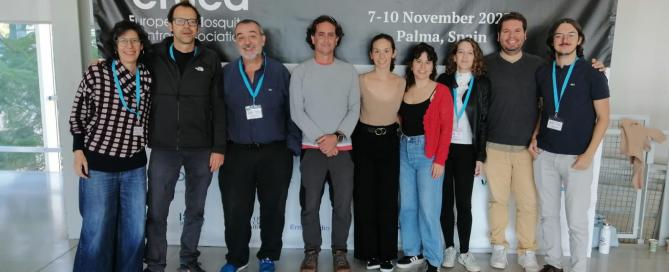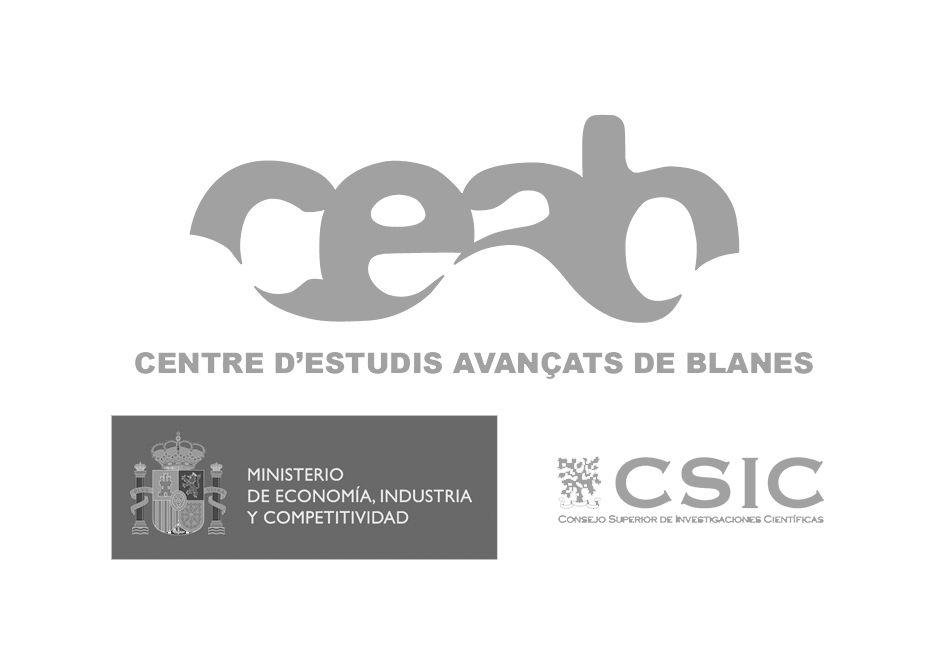EMCA 2023: An Innovative Vision in Vector Control
Last week, the XI International Congress of the European Mosquito Control Association (EMCA) took place in Palma de Mallorca. The event brought together 190 participants (including a representation of the scientific team from Mosquito Alert) from 32 countries and featured the presentation of 116 scientific communications. The central theme of this year’s congress has been titled ‘Shaping the Future of Vector Control in Europe’. The event was organized by researchers Carlos Barceló and Professor Miguel Á. Miranda, distinguished members of the Applied Zoology research group, and active collaborators of Mosquito Alert.
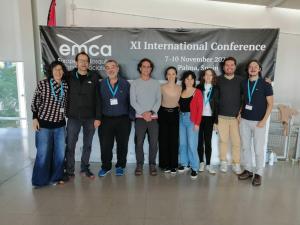
Members of Mosquito Alert who attended the conference in Palma de Mallorca.
Training Course and innovative perspectives
Preceding the conference, the 4th EMCA Training Course took place, a training day consisting of two modules. The first part focused on the identification of various insects collected in traps, including those of medical and veterinary importance. The second part centered, among other aspects, on acquiring skills to learn about mosquito breeding in laboratory conditions.
Scientific advances and debates
During the first day of the conference, presentations focused on the surveillance and management of invasive mosquito species. Vincente Jiménez Ontivero, a research associate at Pompeu Fabra University, presented his findings on the dispersion of the tiger mosquito through genetic analysis.
The second day was marked by debates and presentations related to the control of invasive species. One of the standout talks was the keynote address by Lucía San Miguel from CCAES, addressing the coordination of the Spanish National Plan for the Prevention, Surveillance, and Control of Vector-Borne Diseases, emphasizing the integration of citizen science into this plan.
Citizen collaboration
Citizen participation took a prominent role thanks to the contribution of experts like Roger Eritja, head of entomology and data validation at Mosquito Alert. He focused on the advantages of innovation in community mosquito surveillance and emphasized the importance of collaboration between citizen scientists, experts, and technology
Exploring interactions and control strategies
Subsequently, Isis Sanpera-Calbet from the Blanes Centre for Advanced Studies (CEAB) is a research institute belonging to the Higher Council of Scientific Investigations (CSIC), provided insight derived from her research on human-mosquito interaction in urban areas, focusing on the Barcelona area.
A Meeting Point
Additionally, parallel to the poster presentations, there was a specific informational meeting space for Mosquito Alert attended by almost 30 people. The main objective was to bring together the community of specialists, ReNED members who attended the conference, and emphasize the latest technological innovations of the project. The session included discussions on ongoing and future samplings and introduced the research lines of the project.
The conference emerged as a significant meeting point, bringing together experts from various European projects such as E4Warning and IDAlert.
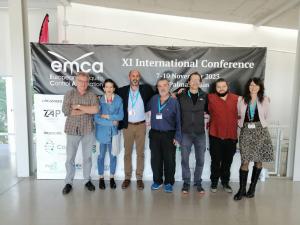
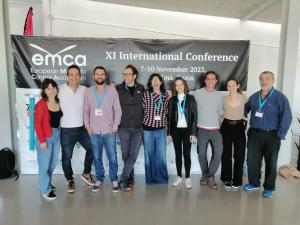
From left to right. Image 1: Meeting of Mosquito Alert and E4Warning members. Image 2: Gathering of ReNED (National Network of Digital Entomology) participants.
Regional focus and conservation
The conference delved into mosquito control in the Mediterranean region and wetland conservation. Specifically, the results obtained through collaboration between the research team of Mosquito Alert, members of CEAB-CSIC, and the Marimurtra Botanical Garden were showcased. Due to its characteristics and proximity to CEAB, the botanical garden offers endless possibilities for research. Laura Blanco-Sierra presented the results of her doctoral thesis within the framework of the Big Mosquito Bites project, outlining the factors driving the abundance of Aedes albopictus in Catalonia. Jesús Bellver-Arnau discussed the optimization of larvicide treatment at the botanical garden as part of the IDAlert project.
The poster session of the conference attracted significant participation, with four proposals presented by the Mosquito Alert team:
- The results of the educational project involving schools in vector control, presented by Santi Escartín and Mar Jambou.
- Spatiotemporal patterns of Aedes albopictus distribution, investigated by Federica Lucati and Vicente Jiménez for the H-MIP project.
- Physiological adaptations to salinity in Aedes albopictus, addressed by Laura Blanco.
- Innovative methods in mosquito surveillance and control, presented as part of the doctoral project by Maria I. González, who recently joined the Mosquito Alert scientific team
El congreso concluyó con un emocionante final. Entre los premios que se otorgaron el viernes por la tarde, destacaron los otorgados a Laura Blanco Sierra y Maria I. González, que compartieron el primer premio al mejor póster. En relación a las charlas, también Laura, recibió el segundo premio como mérito a su ponencia. Laura está realizando su tesis doctoral bajo la dirección de Frederic Bartumeus, codirector de Mosquito Alert y María se incorpora al equipo científico en calidad de investigadora postdoctoral.
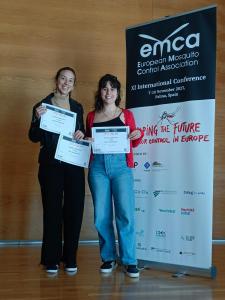
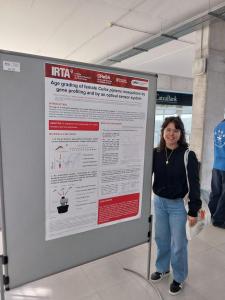
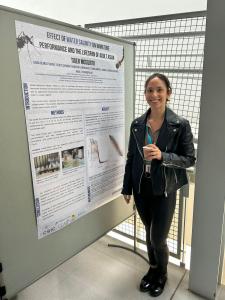
The constructive and collaborative atmosphere set the tone for this conference. The EMCA consolidates year after year as a crucial event for research and control strategies, bringing together experts and professionals in the fight against vector-borne diseases.

